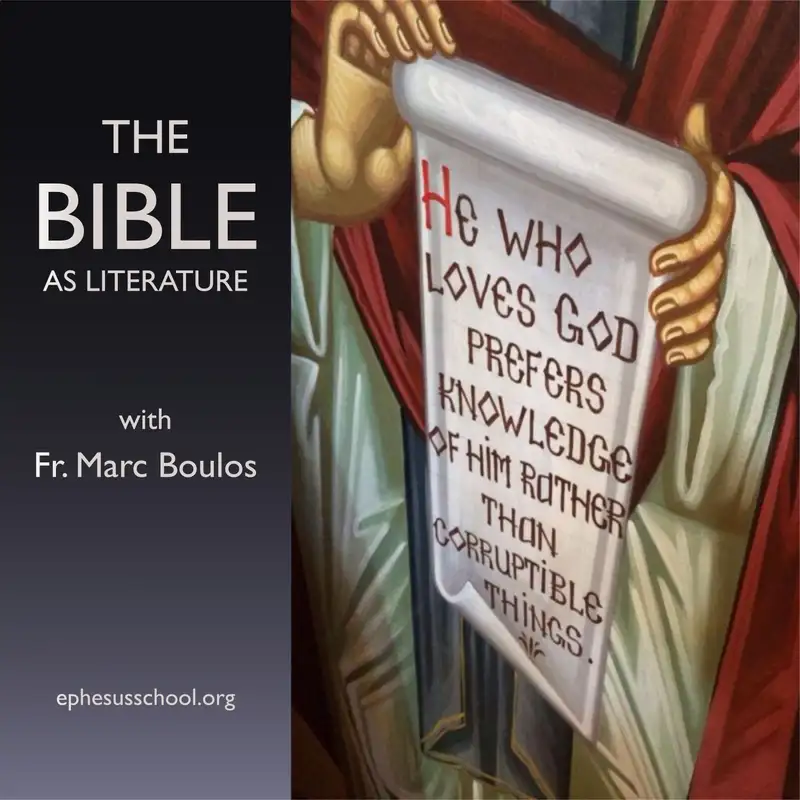
May God Cover Us
Most people, when they hear the story of Josiah and his priest rummaging through the rubble of the temple in Jerusalem and stumbling upon a scroll, fall prey to the hope that Josiah was a reformer. That he picked up the scroll, looked upon those who came before him, and thought: I can do it better. I can get it right this time.
But that's the trap. That's the mistake. That's the arrogance--not just of Josiah, but of the one hearing the story.
Had he only watched Star Trek.
Had he seen what happens, over and over again, to the guy in the red shirt--the one who beams down to the planet with Kirk and Spock. The one standing there, amid ruins, staring at some mysterious artifact.
Why is the planet in ruins? Where have all the people gone?
What is this strange artifact?
And just before the guy in the red shirt meets his inevitable doom, the real question emerges:
Why did they keep it buried?
Why were they afraid of it?
More importantly, why am I holding this thing in my hands?
Perhaps instead of uncovering it, Josiah should be praying for cover--in the wilderness.
This week, I discuss Luke 8:17.
Show Notes
κρυπτός / א-ט-ם (aleph-tet-mem) / أ-ط-م (ʾalif-ṭāʾ-mīm)
“To seal,” “to block,” or “to close securely.” In Arabic, أَطْمَ (ʾaṭma) can indicate “a strong building” or “fortification,” although this root is not as commonly used in contemporary Arabic.
"And there were shuttered windows (אֲטֻמוֹת, ʾăṭumōt) looking toward the guardrooms, and toward their side pillars within the gate all around, and likewise for the porches. And there were windows all around inside; and on each side pillar were palm tree decorations." (Ezekiel 40:16)"There were latticed windows (אֲטֻמוֹת, ʾăṭumōt) and palm trees on one side and on the other, on the sides of the porch; thus were the side chambers of the house and the thresholds." (Ezekiel 41:26)
φανερός / ב-ח-ן (bet-ḥet-nun) / م-ح-ن (mīm-ḥāʾ-nūn)
“Examining,” “testing,” or “distinguishing.” This root appears in various Semitic languages with similar meanings:
- Aramaic: בְּחַן (bǝḥan) – to test, try.
- Syriac: ܒܚܢ (bḥan) – to test, examine.
- Arabic: مَحَنَ (maḥana) – to probe, examine, or test a student.
“Send one of you that he may get your brother, while you remain confined, so that your words may be tested (יִבָּחֵנוּ, yibbāḥēnû) whether there is truth in you. But if not, by the life of Pharaoh, you are certainly spies!” (Genesis 42:16)
The name of the surah, al-Mumtaḥanah, sometimes rendered “She who is to be tested,” refers to the believing women tested in 60:10, the only occurrence of م-ح-ن in the Qur’an, as the term اِمْتَحَنَ (imtaḥana) as the imperative فَامْتَحِنُوهُنَّ ( fa-imtaḥinūhunna“test them!”). In Classical Arabic, م‑ح‑ن conveys “to test,” “to try,” “to examine,” or “to subject someone to a trial or hardship.” The noun مِحْنَة (miḥnah) means “trial,” “ordeal,” or “affliction.”
ἀπόκρυφος / ס-ת-ר (samek-taw-resh) / س-ت-ر (sīn-tāʾ-rāʾ)
Hiding, concealing, covering, or sheltering. The Arabic noun سِتْرًا (sitran) means a covering, a veil, or protection.
لَمْ نَجْعَل لَّهُم مِّن دُونِهَا سِتْرًا
(lam najʿal lahum min dūnihā sitran)
“…We had not provided for them any cover (سِتْرًا) from it (the sun).”
Sūrat al-Kahf (18:90)
الله يستر (allāhu yastur) literally means “God conceals” or “God covers.” In everyday usage, Arabic speakers often say it as an exclamation along the lines of “May God protect us!” or “God help us!” A prayer for protection or guidance in hardship, asking that God will hide something undesirable from public view, such as a fault or mistake, and that he will cover sins.
★ Support this podcast on Patreon ★
